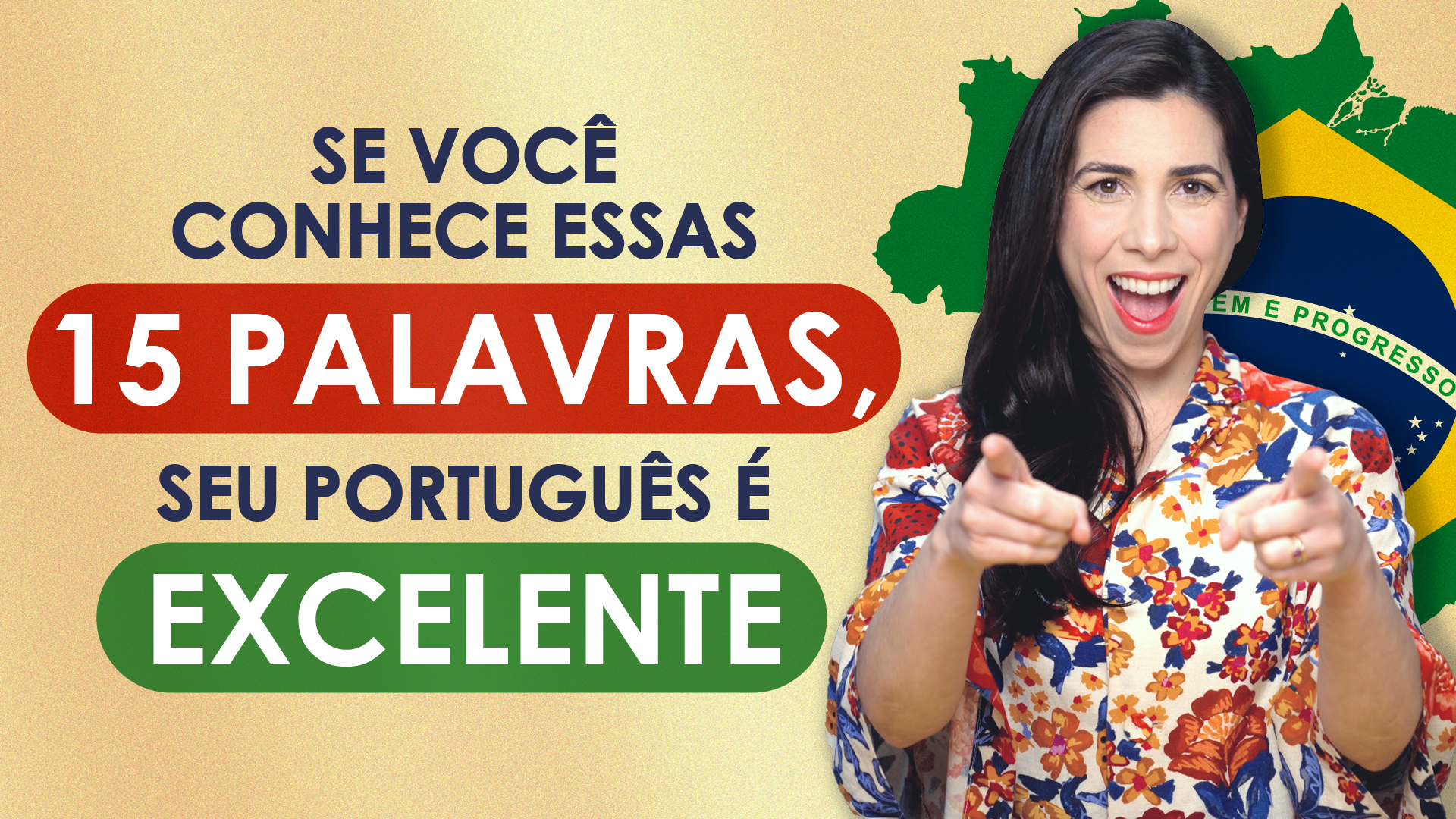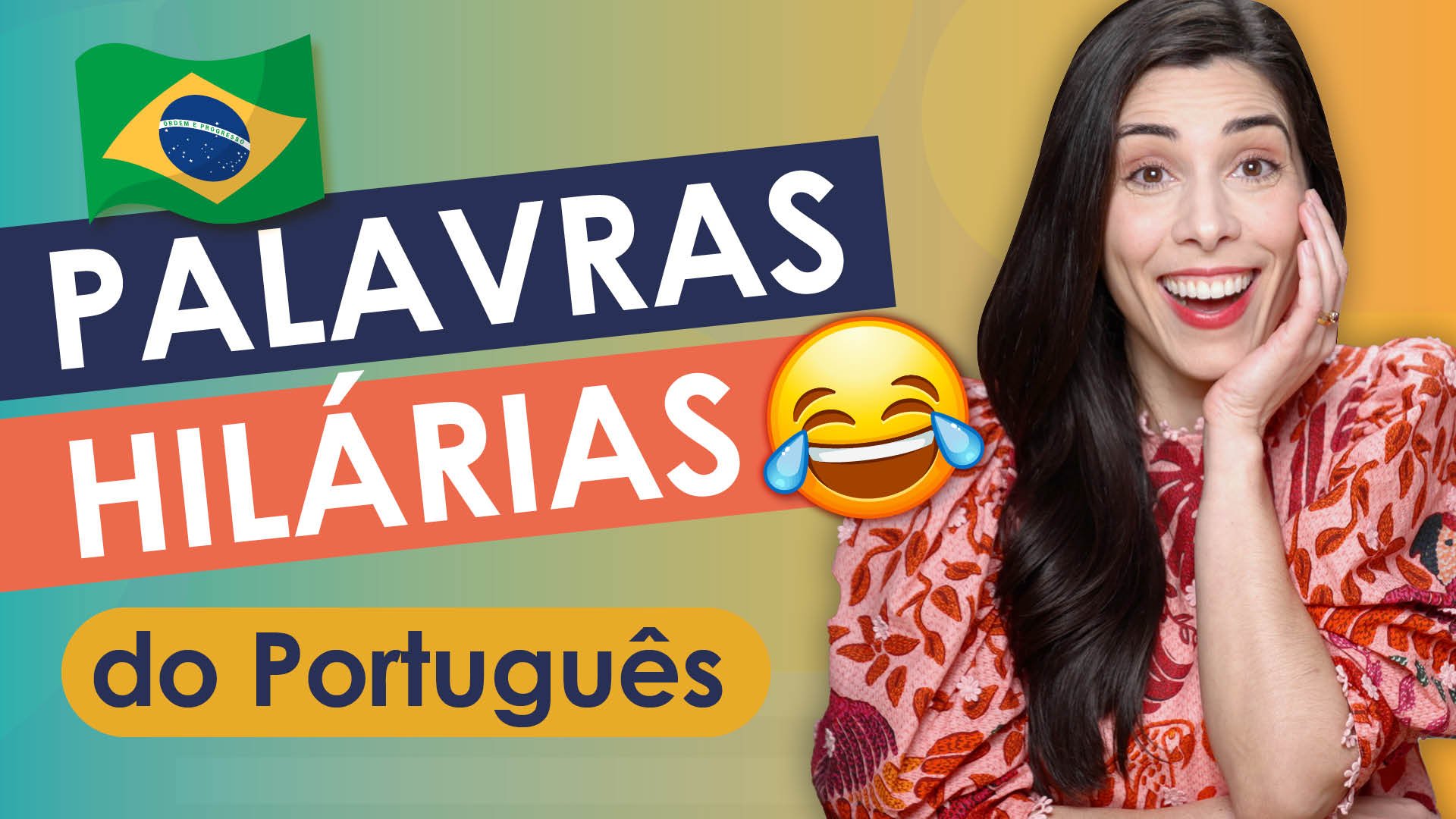Easy Brazilian Phrases for Travel
This lesson includes a free PDF with a vocabulary list. Fill out the form below to download your worksheet.
Olá, queridos alunos! (Hello, dear students!)
This is Virginia, your Brazilian teacher.
Did you know that less than 5% of Brazilians speak English and only 1% are fluent?
That means that if you go to Brazil without speaking any Portuguese, you might find yourself in complicated situations.
In this lesson, you will learn useful words and phrases that I like to call “survival phrases,” that are the most important phrases that you need to know to get by in Brazil.
Survival Phrases in Brazilian Portuguese
1. How to greet someone in Portuguese
There are many different ways to greet people, some are more formal, others are more informal. Let’s start with the most traditional forms.
When you arrive at a place, you can say:
Oi! (Hi!)
Olá! (Hello!)
Tudo bem? (How are you?)
Tudo bom? (How are you?)
Bom dia! (Good morning!)
Boa tarde! (Good afternoon!)
Boa noite! (Good evening!)
All of these options can be used in formal or informal language.
In informal language, there are many other options that vary from one region to another. For example:
E aí, beleza? (So, how’s it going?)
Opa! (Hey!)
Fala aí! (What’s up!)
I don’t use these informal options, but many Brazilians use them. I recommend that you use this informal language only with close friends.
When you are leaving a place, to say goodbye, you can say:
Bye!
Até logo! (See you soon!)
Até breve! (See you soon!)
Até mais tarde! (See you later!)
Até a próxima! (Until next time!)
You can also say goodbye by saying:
Bom dia! (Good morning!)
Boa tarde! (Good afternoon!)
Boa noite! (Good night!)
In more formal language, you can say:
Tenha um bom dia! (Have a good day!)
Tenha uma boa tarde! (Have a good afternoon!)
Tenha uma boa noite! (Have a good night!)
2. How to introduce yourself in Portuguese
Check out some options:
Oi! Eu sou Virginia. (Hi! I’m Virginia.)
Meu nome é Virginia. (My name is Virginia.)
Qual é o seu nome? (What’s your name?)
Eu me chamo Virginia. (My name is Virginia.)
Como você se chama? (What is your name?)
Prazer! (Nice to meet you!)
Muito prazer! (Very nice to meet you!)
O prazer é meu! (The pleasure is mine!)
In more formal language, you can say:
Prazer em conhecê-lo! (It’s nice to meet you!) – to address a man.
or
Prazer em conhecê-la! (It’s nice to meet you!) – to address a woman.
3. Useful phrases for communicating when you don’t understand something, or you don’t know how to say something.
Here are some examples:
Como se diz… em português? (How do you say… in Portuguese?)
Como se escreve? (How do you write?)
Como se soletra? (How do you spell?)
O que significa…? (What does… mean?)
Entendi. (I understand.)
Desculpe, eu não entendi. (I’m sorry, I don’t understand.)
Poderia repetir, por favor? (Could you repeat that, please?)
Poderia falar mais devagar, por favor? (Could you speak slower, please?)
Desculpe, eu não falo português. (I’m sorry, I don’t speak Portuguese.)
Você fala inglês? (Do you speak English?)
4. Words and phrases that you should use to be polite in Portuguese.
The words that you should use all the time are:
Por favor (Please)
and
Obrigado ou Obrigada (Thank you)
Note that the word “thank you” must agree with the gender of the person speaking. That means, if you are a woman, you should say “obrigada,” and if you are a man, you should say “obrigado.”
In natural spoken language, it’s very common not to pronounce the first letter “o” and simply say:
Brigado (Thanks)
Brigada (Thanks)
In informal language, we can also say “valeu” (thanks) in place of “obrigado.”
And how do you respond when someone says “obrigada” or “obrigado?” There are many options. Check out some examples.
De nada (You’re welcome)
Por nada (You’re welcome)
Não há de quê (You’re welcome)
In São Paulo, many people say, “imagina!” or “magina!” (No worries!)
If you bumped into someone in the street or want to say sorry for any other reason, you should say:
Desculpe ou Desculpa (I’m sorry)
If there is someone in your path and you want to ask to go by them, you can say:
Com licença (Excuse me)
or simply
Licença (Excuse me)
5. How to ask for information if you are a little lost and need help finding a place.
Here are some options:
Com licença. Estou perdida(o). Preciso de ajuda. (Excuse me. I’m lost. I need help.)
Estou procurando a praia/ o supermercado/ a farmácia. (I’m looking for the beach/ the supermarket/ the pharmacy.)
Você sabe onde fica o hotel …? (Do you know where hotel… is?)
Como eu chego ao museu / à praia? (How do I get to the museum / the beach?)
Você sabe onde tem um caixa eletrônico? (Do you know where there’s an ATM?)
Você sabe onde tem uma estação de metrô ou ônibus por aqui? (Do you know where there is a subway or bus station close by?)
You can use these phrases to ask many things, by substituting just one word.
For example:
Como eu chego a…. à praia/ ao supermercado/ ao hotel? (How do I get to… the beach/ the supermarket/ the hotel?)
Você sabe onde fica… a praia / o hotel / o museu? (Do you know where the… beach/ hotel/ museum is?)
Você sabe onde tem…um caixa eletrônico, um ponto de táxi, uma farmácia. (Do you know where there is… an ATM, a taxi stop, a pharmacy?)
Travel Vocabulary Crash Course
This lesson covers only the most important phrases. If you want to learn more survival phrases, I recommend my course Travel Vocabulary Crash Course, which is perfect for anyone planning a trip to Brazil.
In this course, you will learn how to communicate in airports, hotels, and restaurants, how to buy things in Portuguese, and much more!
Free PDF!
This lesson includes a free PDF with a list of 70 Brazilian expressions and idioms. Fill out the form below to download your worksheet.
Online Brazilian Portuguese Courses
If you enjoyed this lesson, you’ll love our courses! At Speaking Brazilian School, we offer digital courses, small group classes, and private lessons. Click here to learn more about our Brazilian Portuguese online classes.
Até a próxima!
Virginia & Speaking Brazilian Team


